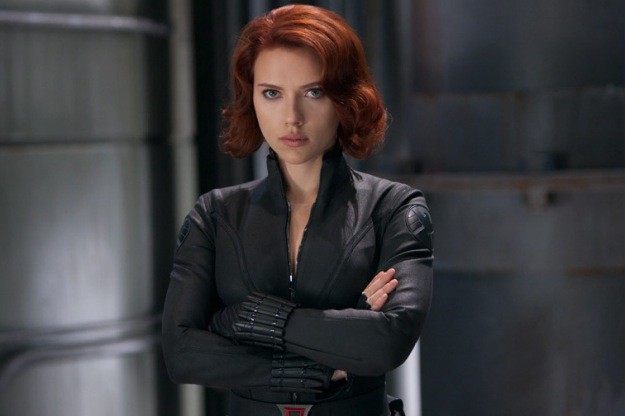Marvel CEO Ike Perlmutter has his mind made up about superheroines — they aren’t profitable. An email exchange between Perlmutter and Sony CEO Michael Lynton has been made public after WikiLeaks uploaded new content from the Sony hack.
Here’s what Perlmutter sent Lynton, presumably a follow-up to a conversation the men had about whether or not to greenlight more “female movies.”
“From: “IP”
To: “Lynton, Michael”
Subject: Female Movies
Date: Thu, 7 Aug 2014 05:32:50 -0400
Michael,
As we discussed on the phone, below are just a few examples. There are more.
Thanks,
Ike
1. Electra (Marvel) — Very bad idea and the end result was very, very bad. http://www.boxofficemojo.com/movies/?id=elektra.htm
2. Catwoman (WB/DC) — Catwoman was one of the most important female character within the Batmanfranchise. This film
was a disaster. http://www.boxofficemojo.com/movies/?id=catwoman.htm
3. Supergirl — (DC) Supergirl was one of the most important female super hero in Superman franchise. This Movie
came out in 1984 and did $14 million total domestic with opening weekend of $5.5 million. Again, another disaster.
Best,
Ike”
It’s worth considering a number of factors here. Firstly, what constitutes as “female movies” is narrowly defined. It seems fair to assume that Perlmutter is referring specifically to female superhero movies. If that’s the case, why is something like “The Hunger Games” omitted from this list? The extremely lucrative franchise is led by a woman, and while Katniss isn’t technically a superheroine, she’s certainly marketed as one. Isn’t “The Hunger Games” a more relevant example of how female-led films fare at the box office today than, say, “Supergirl,” which was released over 30 years ago? “Catwoman” and “Elektra” screened 11 and 8 years ago, respectively. All of them came out before superhero movies were the titans of multiplexes that they are today.
Secondly, each entry in Perlmutter’s list was panned by critics. Blockbusters admittedly aren’t synonymous with critical acclaim, but maybe people didn’t go see these particular movies about women because they were bad and thus not worth seeing — not because they think movies about women are bad or not worth seeing. Why have a few duds come to define the marketability of movies about women?
Thirdly, as the source, Oh No They Didn’t, correctly points out, a list of “Male Movies” that did poorly at the box office could just as easily be compiled — “Green Lantern,” “The Lone Ranger,” “Superman IV,” and “Daredevil,” to name a few. These movies were based on very popular male characters and failed spectacularly, yet no mention of them is being made, and we’ve certainly never heard anyone attribute their lack of success to the fact that they focused on male characters.
We’re totally unsurprised by Perlmutter’s mentality, which is all too common in Hollywood: male-centric movies that fail are treated as anomalies, whereas female-centric movies that fail are designated as failures on account of the gender of the protagonist. So few movies about women are being made that the stakes become absurdly high — when a big-budget movie focused on a woman doesn’t draw big numbers, you can bet that it will be cited as an example of the taken-for-granted fact, which is actually a myth, that movies about women don’t make money.
That’s why it’s so crucial that a film like “Wonder Woman” does well. We’ve confirmed that it will be the first woman-directed live action feature with a budget over $100 million. If “Wonder Woman” bombs (which we don’t think it will), its failure will be offered as damning evidence proving that big budget films by and about women shouldn’t get made. As Diablo Cody recently told LA Weekly, “If a movie starring or written by or directed by a man flops, people don’t blame the gender of the creator. It’s just kind of weird how the blame is always immediately placed on female directors.”
Marvel fans have bemoaned the lack of a Black Widow movie for ages, and when Scarlett Johansson hosted “Saturday Night Live” this week the “Avengers: Age of Ultron” actress poked fun at the fact that Marvel has yet to capitalize on her character’s popularity.
A fake trailer for a Black Widow movie, “Age of Me,” begins with a voiceover acknowledging the fact that she’s one of the few Avengers not to have her own starring vehicle: “You wanna know why no Black Widow movie? Does Marvel not know how to make a girl superhero movie? Chill. Marvel gets women.” What follows is a hilarious reflection of the extent to which Marvel doesn’t “get” women — as if women are a monolothic group uncomplicated by, you know, individual identities. Women love romance! And impractical shoes! And dishing about boys! And so, Marvel studios has partnered up with the writers behind “27 Dresses” to offer “Age of Me,” a romantic comedy starring Black Widow.
Johansson isn’t alone in offering a critique of Marvel’s representation of women. Her “Avengers: Age of Ultron” co-star Mark Ruffalo recently sent a tweet to the studio urging them to manufacture more Black Widow merchandise. Their director, Joss Whedon, attributed the lack of female superheroine movies to “intractable sexism” and “old-fashioned, quiet misogyny.”
So Marvel, and specifically Ike Perlmutter, please consider the following: Movies about women are profitable and women account for 52% of moviegoers. Keep these basic facts in mind when discussing and determining the future of the Marvel universe. Nevermind being morally reprehensible, relegating female characters to the sidelines is bad business.
We can expect to see a woman-centric Marvel movie in November 2018 — more than three years from now — which is when “Captain Marvel” will be released. Marvel will of course be releasing many movies about men in the interim.
[via Oh No They Didn’t]







